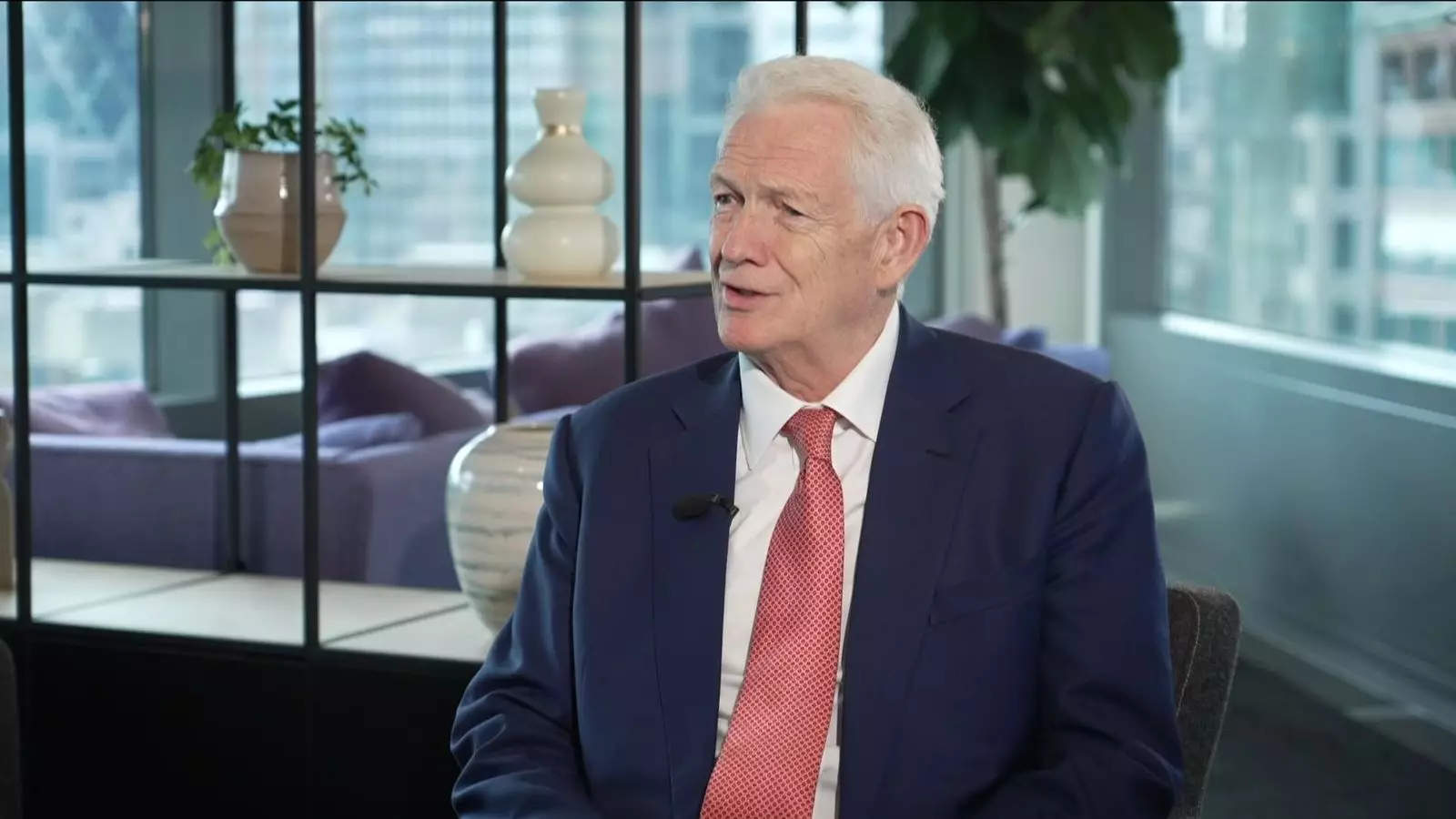The recent comments by Rick Haythornthwaite, Chairman of NatWest, evoke a complex interplay of gratitude and unsettling echoes from the past. As NatWest emerges from state ownership following a monumental taxpayer-funded bailout in 2008, one must question the sincerity of his statements. While he expresses profound thanks for the public rescue that presumably safeguarded millions of savers, businesses, and homeowners, we should ask: are we truly learning from the calamitous chapter of the financial crisis? Or are we merely trying to erase it from our narrative?
Bailouts, particularly of banks, are often depicted as acts of necessity, yet they straddle a fine line between rescue and recklessness. Haythornthwaite’s words about gratitude hint at an acknowledgment of the public’s sacrifice, but he conveniently skates over the systemic issues that led us to such a precarious edge in the first place. It’s striking that his reflections coincide with a push to roll back regulations implemented in the wake of the bailouts. One must ponder the commitment to change as he claims that “lessons of the past” will not be forgotten. Is this an assurance or merely lip service in the pursuit of profit?
The Cost of Complacency
The reported £10.5 billion loss to British taxpayers serves as a stark reminder of the dangers of complacency in the financial world. The history of reckless banking, fueled by the thirst for profit over prudence, left an indelible mark on the economy. The chaos that ensued was marked not only by financial ruin but also by a deep mistrust in a system that had long glorified risk-taking. Haythornthwaite, while reflecting on past failures, seems poised on the cusp of reversing some of the hard-won regulations intended to prevent us from retracing these perilous steps.
The introduction of measures like ring-fencing—the act of separating retail banking from investment banking—was meant to insulate customer services from the toxic risks endemic to speculative trading. But now, as NatWest looks to dismantle such barriers, one is left with the nagging question: are we ready to gamble with our economic stability once again? In his eagerness to push for regulatory alterations, Haythornthwaite’s assertions collectively view oversight as a burden rather than a form of safeguard. This misstep could lead to a dangerous precedent, as evidenced by the very crisis that compelled taxpayers to reach into their own pockets.
The Illusive Quest for Growth
Chancellor Rachel Reeves’ growing receptiveness to the banking sector’s calls for deregulation raises justified concerns among those who endured the scars of the 2008 crisis. In her quest for economic growth, is she overlooking the foundational principles that could foster sustainable and responsible banking practices? The lifting of the bonus cap, while framed as a progressive move, invites excessive risk-taking rather than nurturing stable growth. Haythornthwaite’s notion that this is not a “race to the bottom” rings hollow when contrasted against the backdrop of past excesses.
It is chilling to think that the banking sector is already scrutinizing the conditions of its accountability while masquerading gratitude for taxpayer support. While it is critical to foster a flourishing economy, this should not come at the expense of the very fabric of trust that keeps our financial system intact. Haythornthwaite’s calls for less duplication in regulation and lower costs might resonate on the surface, but they overlook an categorically important truth: accountability and ethical governance are the pillars upon which economic revival must be built.
Ethics in Banking: A Perilous Balancing Act
As Haythornthwaite touts a renewed focus on customer ethics, it is imperative to question who really benefits from this ethical overhaul. Ethical banking is more than just a façade; it requires a cultural shift within the institution itself, promoting transparency and integrity. Unfortunately, there persists a growing narrative that presents ethics merely as public relations’ fodder rather than an operational mandate.
If UK banks wish to prevent plunging into the same abyss that was the 2008 crisis, it is essential that their leadership moves beyond rhetoric. The call for genuine corporate governance reform and commitment to customer-centric practices is paramount. The opportunity to reshape the financial landscape is within reach, but only if those in significant power embrace accountability as the cornerstone of their business model rather than a checkbox to tick.
In this complicated dance between gratitude, risk, and growth, the stakes remain high. The true resilience of our financial system will be measured not just in profits but in the ethical stewardship that leads us forward, wary of the alluring shadows of past mistakes.



Leave a Reply